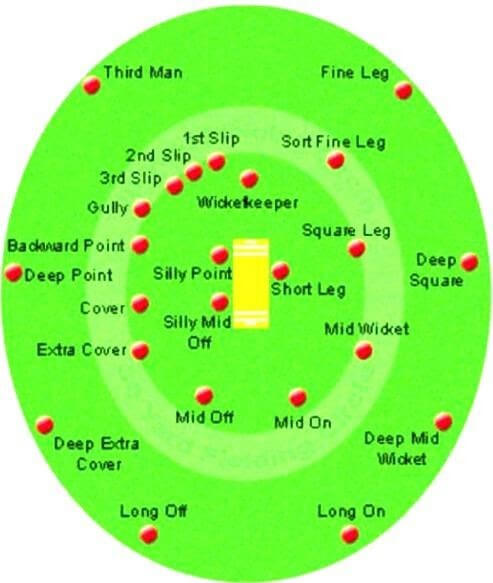
There are some fundamental rules that every rugby game follows. These are the Field of Play (or Goalposts), and how to move the ball forward by using your hands. Learning about them will help you enjoy this exciting sport even more! Read on to learn more about the basic rules of rugby. You should be able to recognize the basic rules of rugby and how to play it properly the next time that you watch it.
Laws of rugby
Rugby's laws are the rules that must be followed during a game. These rules are set by World Rugby and enforced by the referee. He is usually assisted with two assistant referees.

Field of play
The field of play, in rugby rules, is the area where each team's players line up side by side. This area is also known as the scrum. Rugby has 15 players. Each player plays both offense and defensive. A player who infringes on the rules is punished and expelled from the game for a period of 10 minutes. The field of play is marked with a number and includes markings for the various positions on the pitch. For example, the forwards are the most powerful players on the pitch. They use their speed and strength in order to get possession of the ball. While the forwards are larger and more agile, the backs play smaller and quicker.
Goalposts
Goalposts are H-shaped posts placed at either end of the field for scoring a try in rugby rules. A player kicks the football over the H shaped goalpost and the crossbar to score a touchdown. The team will not be awarded points if the kick is unsuccessful.
Passing the ball forward with your hands
There are two different ways to pass the ball forward in rugby: using your hands to run and passing with your hands. It is forbidden to kick the ball but you can pass it with your fingers in most cases. You need to be able to determine the right angles and speed at which to pass the ball. Your pass must be catchable.
Tackles
Referees in rugby have placed a lot emphasis on illegal tackles. Because rugby players are not allowed to touch the neck or head of another player, referees place a lot emphasis on illegal tackles. Head contact can occur but the referee will seek to mitigate the situation.

Penalty kicks
Penalty kicks in rugby are controversial in a number of ways. The kicker could take the penalty in the past if he 'hit' rugby with his hand. With the six-again rule, opposing teams cannot intentionally touch the ball to prevent it being kicked. This will result in a quicker game with fewer stops and more free-flowing action.
FAQ
What is extreme sport?
Extreme sports include paragliding and skydiving as well as bungee jumping and hang gliding.
They are popular because they provide adrenaline-pumping thrills that don't involve any danger.
Extreme sports are often seen more as challenges than dangers.
Skiing is by far the most popular extreme sport. Skiing has been around for thousands of years, but it was not until the early 1900s that it became a significant form of winter recreation.
Skiing is now one of the world's fastest-growing sports, with more than 4 million new participants each year.
Are extreme sports expensive?
Yes. Extreme sports equipment can cost thousands of dollars. But people who participate in these activities don't need much money.
What's the most dangerous extreme sport?
It's snowboarding, because you balance on top a board while falling from a mountain at high speeds. If you fall the wrong way, you could end up in a grave situation.
Statistics
- Boxing— 90% of boxers suffer brain damage over their careers, and this is not surprising in the least, considering that they are throwing punches at each other's heads. (rosenfeldinjurylawyers.com)
- Overall participation has grown by more than 60% since 1998 - from 5.9 million in 1998 to 9.6 million in 2004 Artificial Wall Climbing. (momsteam.com)
- Based on the degree of difficulty, the routine is scored on form and technique (50 percent), takeoff and height (20 percent), and landing (30 percent). (britannica.com)
- Nearly 30% of all boardsailors live in the South, and more than 55% of all boardsailors live in cities with a population of more than two million people (momsteam.com)
- Landscaping and grounds-keeping— according to government labor statistics, about 18 out of 100,000 workers in the landscaping industry are killed on the job each year. (rosenfeldinjurylawyers.com)
External Links
How To
How can I learn to ski?
Skating is a sport that requires you to use your feet on snow or ice. You can do this either by yourself or with friends. It is a sport that requires balance and coordination. You must first learn how to stand upright on the board. You can then practice balance by moving forward and reverse. You can also try jumping off stairs or ramps. Once you've mastered these skills, you'll find yourself skating faster and farther than ever before!
Here are some tips and tricks to get you started with skating.
-
It is important to determine the type of skates that you are looking for. There are many different types of skates like inline skates or roller blades. Speed skates, figure and speed skates are all available. You should choose the right type of skates based on your level. Inline skates, roller blades, and speed skates are ideal if you just want to give them a go. Figure skaters are more likely to purchase boots that provide support for their movements.
-
Buy proper equipment. Your preference in gear depends on whether your goal is to compete or just skate around the park. Skates that are well-made, durable, and fit well for competition are the best.
-
Try new techniques. Learning any skill takes practice. Do not wait until you have mastered a skill to practice it. Instead, practice simple movements like walking backwards, sliding sideways or spinning. This will help you not feel intimidated when you try harder maneuvers.
-
Keep learning. Never expect to become a skilled skater overnight. Skaters who are the best spend many years perfecting their skills. They never stop learning. There are many ways to improve your technique. There are many ways to improve your technique, such as taking lessons at a local skating rink, joining a recreational league or watching videos online.
-
Be patient. Do not worry if you are still having difficulty mastering a complicated maneuver. Keep practicing. You will eventually develop the confidence to perform advanced stunts.
-
Have fun. Skating, which doesn't require special equipment or any training, is a great sport for beginners. It's also a lot fun!